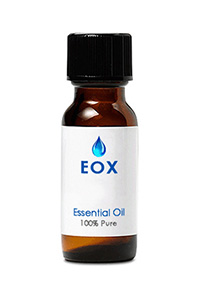New ArrivalsGift Ideas Specials Contact Us

WINTER 5% OFF SALE!
SITEWIDE05
Simply enter the above coupon code and save 5% on your ENTIRE ORDER!
Use PayPal, cash, or checks! NO LIMIT!

Now In: CATEGORIES → Essential Oils → 15ml Bottles → Essential Oil - Juniper Berry
Botanical name: Juniperus communis Color: Clear Consistency: Thin Perfumery note: Middle Related Planets/Deities: Jupiter/Astarte (Phoenician goddess) Aroma: Sharp, rich, complex, a minty, weedy scent Energetic Properties: Purifying, connecting, dark, introspective. Aromatherapy Properties: A water-white or pale yellow mobile liquid with a sweet, fresh, woody-balsamic odor. It blends well with vetiver, sandalwood, cedarwood, mastic, oakmoss, galbanum, elemi, cypress, clary sage, pine, lavender, labdanum, fir needle, rosemary, benzoin, balsam tolu, geranium, and citrus oils. Spiritual Uses: Juniper has long been used to create clairvoyance and to bridge the gap between this world and what lies beyond. It is also useful for purification, and is traditionally burned in the celebration of Samhain. It is one of the nine woods traditionally placed in a Celtic balefire. Juniper is useful for protection magick, particularly warding off theft. Blends well with: Juniper blends nicely with woody scents, such as Cypress, Cedarwood, and Sandalwood, as well as with Lavender. It mixes well with citruses, such as Lemon, Lime, Bergamot, and Grapefruit, and also with Vetiver and Clary Sage. History: Although not native to Egypt, Juniper berries have been found in ancient Egyptian tombs, and it is believed that they may have been imported from Greece. The Greeks themselves reported on the medicinal benefits of Juniper berries long before using them in food. They were used by athletes in the ancient Greek Olympics, as they were believed to increase strength and stamina. Juniper is the chief ingredient in gin, the liquor developed in the Netherlands in the 17th century; the name “gin” itself derives from either the French (genièvre) or the Dutch (jenever), both meaning “Juniper.” In the Scottish Highlands on New Year’s Day, Juniper was often burned both in the house and in outside bonfires. Perfect for use with our Ceramic Oil Burners. |
|
|||||||
|
|||||||





